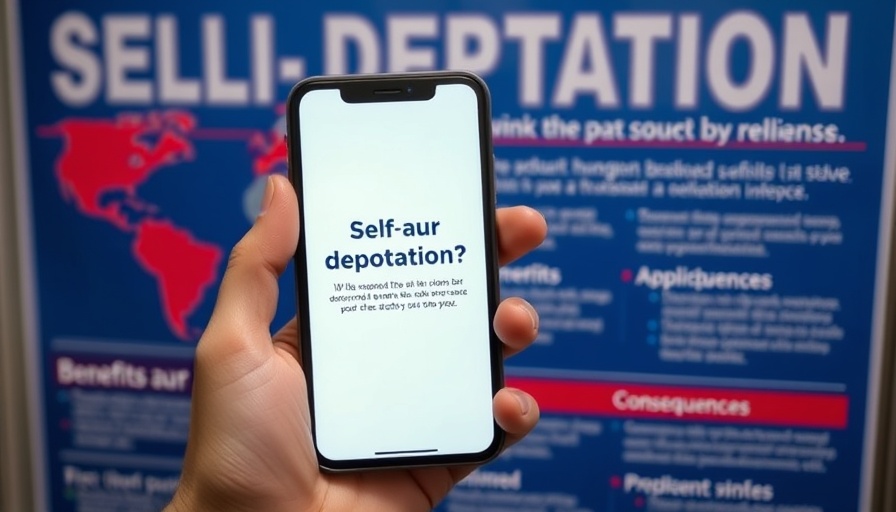
Understanding Assisted Voluntary Return (AVR) for Migrants
Recently, the U.S. Department of Homeland Security (DHS) introduced a program that offers financial and travel assistance to undocumented migrants who wish to return voluntarily to their home countries. This program is part of the CBP Home App initiative, which aims to provide a dignified pathway for individuals to leave the U.S. safely. Through this initiative, the DHS states that illegal aliens who choose to self-deport can receive a stipend of $1,000, encouraging a more respectful exit from the country.
The Role of IOM in Supporting Migrants
The International Organization for Migration (IOM) plays a crucial role in assisting individuals in this program. As a spokesperson explains, their involvement ensures that migrants who register for voluntary return receive adequate support and assistance. This is especially important for individuals who might lack the resources or legal means to return home effectively.
For over 100 years, IOM has championed the rights of migrants worldwide, facilitating plans for their return which respect their dignity. AVR initiatives focus on empowering migrants, enabling them to make informed decisions while providing access to necessary services. In this way, IOM supports individuals in unclear and stressful situations, such as many face within the complicated U.S. immigration framework.
Financial Implications and Migration Policy
The financial strategy behind the CBP Home App is noteworthy. While providing a stipend, the DHS estimates that the program could reduce deportation costs by about 70%. The average expense tied to the process of arresting, detaining, and deporting an individual in the U.S. is approximately $17,121. Thus, the initiative not only aids migrants but is also economically beneficial for the government.
A Cautious Approach to Migration
It’s essential to recognize that the U.S. government retains complete authority over its migration policies. The involvement of IOM in this context comes after individuals consent to participate, distinguishing its role from any procedures related to deportation, which the organization does not facilitate. This underlines the IOM's commitment to ethical practices within migration movements, focusing solely on voluntary and informed returns.
Supporting Vulnerable Populations
Migrants often face a landscape riddled with challenges, including complex immigration laws and limited resources. The AVR program, as facilitated by IOM, seeks to alleviate some of these burdens. It acts as a support structure to ensure that those who opt for this path can do so with peace of mind, minimizing the anxiety typically associated with migration decisions.
Conclusion
The Assisted Voluntary Return program represents a significant initiative aimed at helping migrants navigate difficult choices while retaining their dignity. By providing financial assistance and support through experienced organizations like IOM, the program not only addresses the immediate needs of migrants but also lays a foundation for thoughtful and compassionate migration practices.
 Add Row
Add Row  Add
Add 




 Add Row
Add Row  Add
Add 


Write A Comment